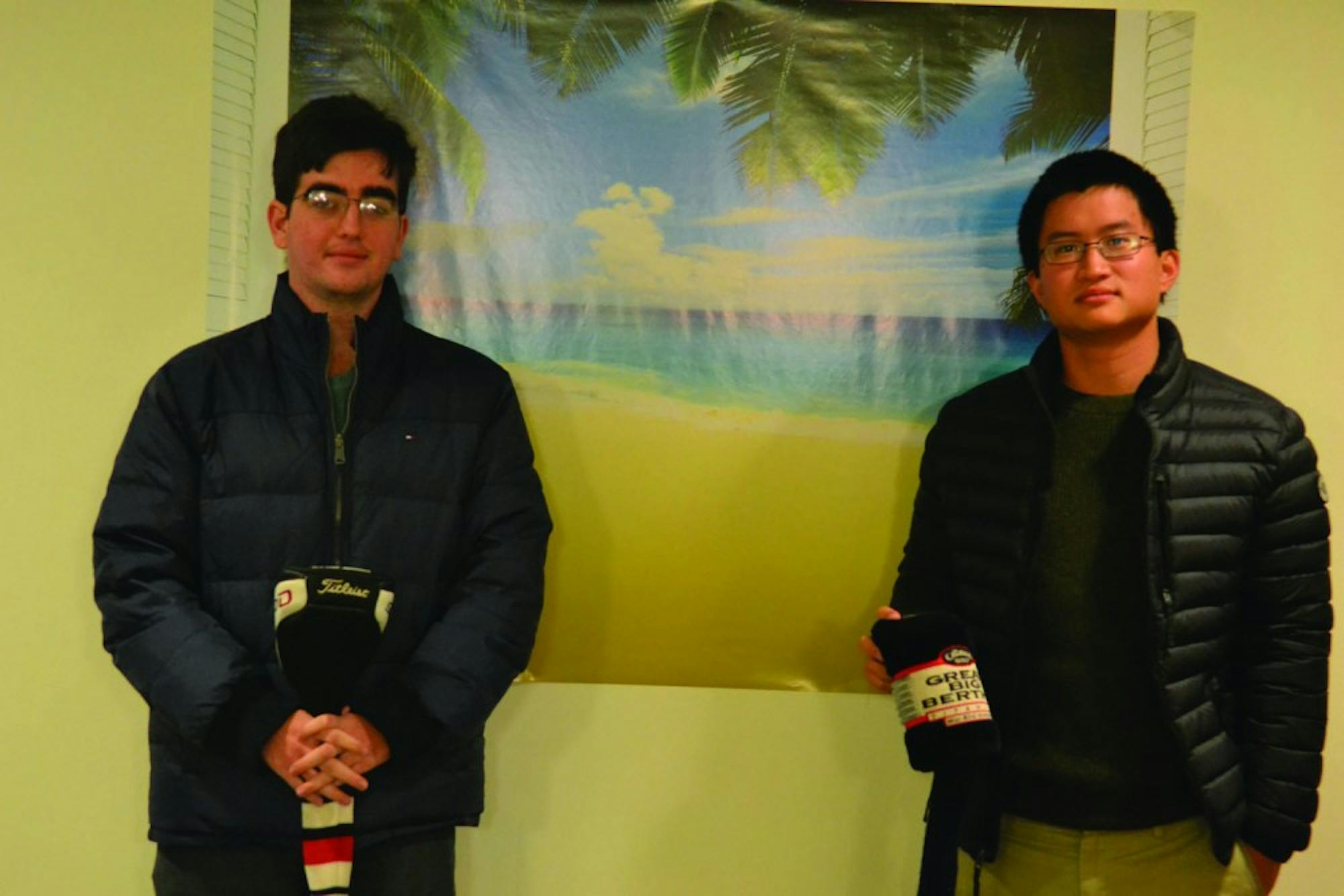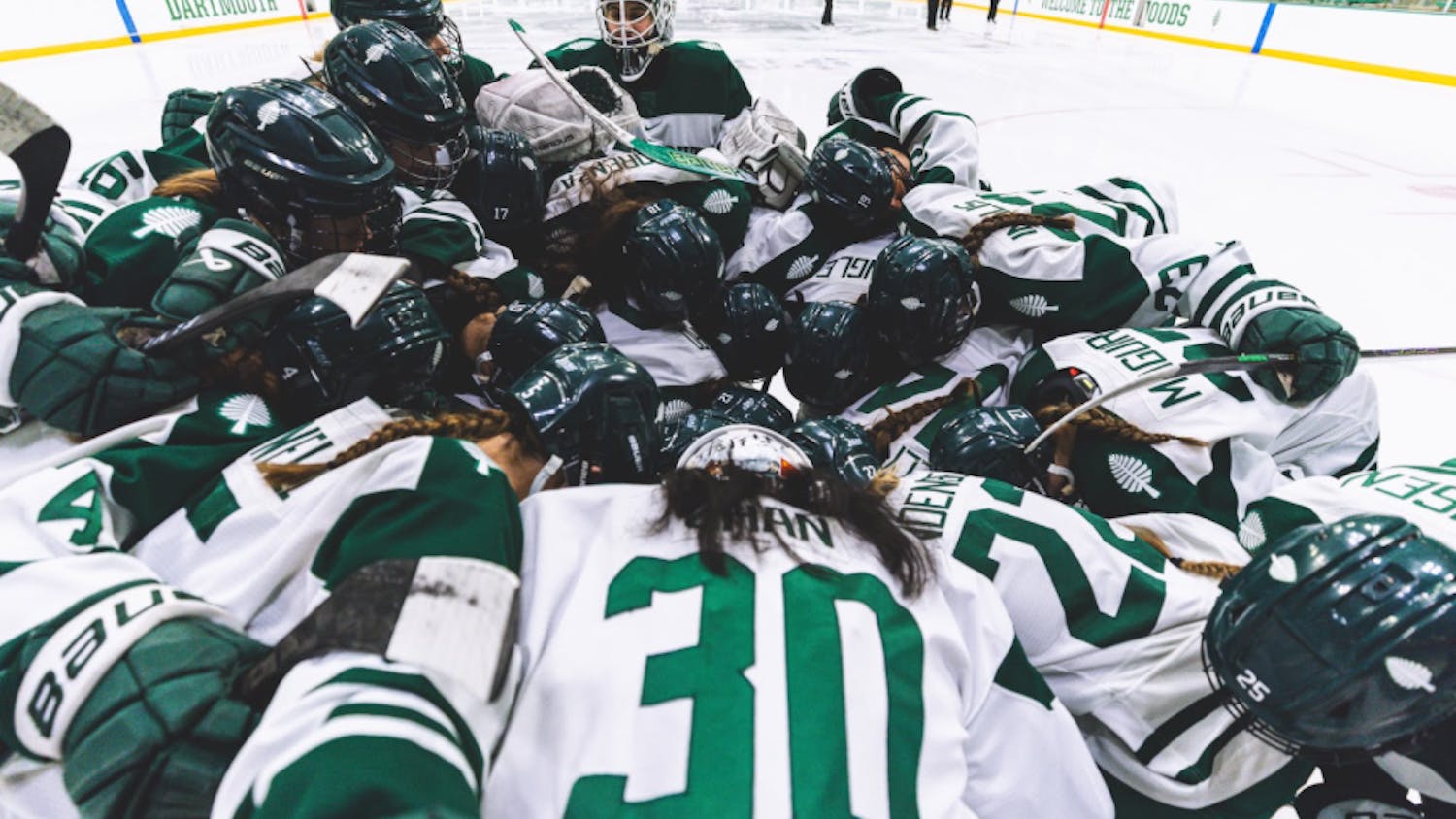Things are worse than ever. Our final Winter Carnival is in the books and all the traditions we once held dear, everything that we once lovingly cradled to our bosom, has been robbed from us by the idiotic and corrupt College administration. The polar bear plunge. Canceled because “Occom Pond was unsafe.” The snow sculpture. Abandoned because “there was no snow on the Green.” (Although we do appreciate the efforts of Thomas “Riddle” Rover ’16 and his rogue snow sculpture.) Hoverboards. Banned from campus merely because their “lithium ion batteries were prone to spontaneous combustion.” Now, finally, College President Phil Hanlon and his hunchbacked lackeys have gone too far.
The writers of Riding the Pine hold just one thing to be sacred, one thing to be held beyond the reaches of juvenile humor, beyond the mocking jibes of the College’s administrative phalanx. That one sacred mode of transportation was the hoverboards. And now, the powers that be in Parkhurst have profaned even that last sanctuary of the futurists among us, that refuge of the exhausted and hopeful denizens of Hanover. Hoverboards are no more. By banning hoverboards, the administration may as well have banned hope from Hanover.
After the administration plummeted from grace in our eyes, we were left alone on this campus, grasping for some figures to respect and even to idolize. While we hoped it could be the new editor-in-chief of The D, Rebecca “A-Side” Asoulin ’17, we sadly lost all respect for her as well after she allowed us to publish the phrase Bernie “the Butthead” Sanders in last week’s column. Her complete lack of judgement and utter disregard for cultural norms and mores has lowered her from her once-maternal role in our lives to bottom-feeder status, no better than the morays scooping the filth and bacteria from the ocean floor.
After these two fallen heroes, we were left to turn to the sports world in the hopes of finding one lone figure to represent us, one role model to call our own. We found such a figure nearly immediately in Houston Rockets center Dwight Howard.
Howard naturally embodies nearly all the values that we hope to embody ourselves one day. His unmatched dominant physical virtuosity reminds us of our own unpracticed and untrammeled writing ability. When you’re 7 feet tall with a 40 inch vertical, you almost have no choice but to dominate the NBA. Our writing skills and diction bring to mind a similar dominance over the field of words and letters.
Howard reminds us of ourselves in another, perhaps less flattering way. Just as we strain at the constraints posed by even the loosest and most relaxed editor, so too does Howard chafe beneath the chains presented by any coach at all. Howard is widely known as a coach-killer, demanding trades or changes in management when he does not get his way. We are known as editor-killers, having offered our talents to The Tab at least 11 times over the last calendar year. (Unfortunately, we have been denied every time.)
Despite his dominant physical attributes and immense natural talent, Howard remains widely hated by the sports community. This is one of the characteristics we admire most about the Superman. It’s lonely at the top.
Finally, and shamefully, we will admit the other area where we keep Mr. Howard company. Nearly always, natural talent and physical dominance is accompanied by other, far less flattering traits — profound mental weakness and insecurity. In this area, your favorite sports scribes find Howard to be a true kindred spirit. Though Howard can dunk from the free throw line, he finds himself unable to shoot better than 60 percent from the charity stripe. In the same way, though we can pen nearly flawless commentary on the worlds of sports, art, culture and finance, we find ourselves undone by the slightest criticism, humbled and humiliated by a moment far from the spotlight. We came into the public’s eye naturally, but we’ve grown addicted to it, nourished by it.
Without the adulation from our countless fans, we find ourselves lower than dirt, buried beneath even our pathetic editors at The Daily Dartmouth. There are no role models left on this campus. We’re seniors. We are the ones that people turn to looking for idols, looking for guidance. But who will watch the watchmen?
Despite the pain, despite the sacrifice, despite the heartbreak, we must keep struggling along. As Sartre once said, “Man is condemned to be free.” Still, somewhere deep down, we find a grain of optimism, an ounce of hope. Perhaps around this next corner, we can find a modicum of inner peace.
As our other idol Ted Kennedy once said: “The work goes on, the cause endures, the hope still lives, and the dream shall never die.”




